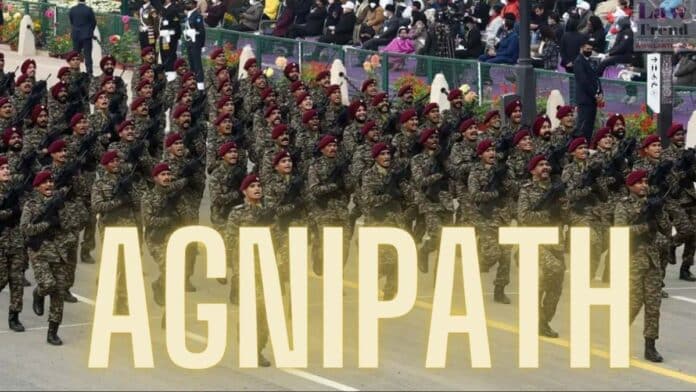The Delhi High Court is likely to pronounce on February 27 its judgement on a batch of petitions challenging the Centre’s Agnipath scheme for recruitment in armed forces.
A bench of Chief Justice Satish Chandra Sharma and Justice Subramonium Prasad had on December 15 last year reserved its verdict on the matter.
According to the cause list of Monday (February 27) uploaded on the High Court’s website, the judgement will be pronounced by the bench at 10.30 am.
The Agnipath scheme, unveiled on June 14, 2022, lays out rules for the recruitment of youths in the armed forces.
According to these rules, those between 17-and-a-half and 21 years of age are eligible to apply and they would be inducted for a four-year tenure. The scheme allows 25 per cent of them to be granted regular service subsequently. After the scheme was unveiled, protests erupted in several states against the scheme.
Later, the government extended the upper age limit to 23 years for recruitment in 2022.
Additional Solicitor General (ASG) Aishwarya Bhati and central government standing counsel Harish Vaidyanathan, representing the Centre, had said the Agnipath scheme is one of the biggest policy changes in defence recruitment and was going to bring a paradigm shift in the way the armed forces recruit personnel.
“More than 10 lakh aspirants have taken advantage of the two-year age relaxation given by us… A lot of things we cannot say on affidavit, but we have acted in bona fide manner,” the ASG has said.
The high court had also asked the Centre to justify different pay scales of ‘Agniveers’ and regular sepoys in the Indian Army if their job profile is same.
Defending its Agnipath scheme, the Centre has said a large amount of study has gone into this policy and it was not a decision which was taken lightly and the Union of India was mindful and cognisant of the situation.
Earlier, the bench had asked the petitioners who have challenged the Centre’s short-term military recruitment scheme Agnipath as to which of their rights have been violated and said it was voluntary and those having any problem should not join the armed forces under it.
The high court had said the Agnipath scheme has been formed by experts in the Army, Navy and Air Force, and judges were not military experts.
One of the petitioner’s counsel had said that after being recruited under the scheme, the Agniveers will have life insurance of Rs 48 lakh in case of contingency which is much less than the existing one.
Whatever the armed forces personnel are entitled to, these Agniveers will get them only for four years, the counsel had argued, adding that if the service would have been for five years, they would have been entitled to gratuity.
The Centre had earlier filed its consolidated reply to several petitions against the Agnipath scheme as well as those concerning the recruitment processes for the armed forces under certain previous advertisements and has said there was no legal infirmity in it.
The government submitted that the Agnipath scheme was introduced in the exercise of its sovereign function to make national security and defence more “robust, “impenetrable” and “abreast with changing military requirements”.
One of the petitions before the high court has sought a direction to the armed forces to resume the recruitment process which has been cancelled due to the introduction of the Agnipath scheme and prepare the final merit list after conducting a written examination within a stipulated time.
Earlier, the Supreme Court had asked the high courts of Kerala, Punjab and Haryana, Patna and Uttarakhand to transfer the PILs against the Agnipath scheme pending before them to the Delhi High Court or keep it pending till a decision from the Delhi High Court is delivered, if the petitioners before it so desire.




